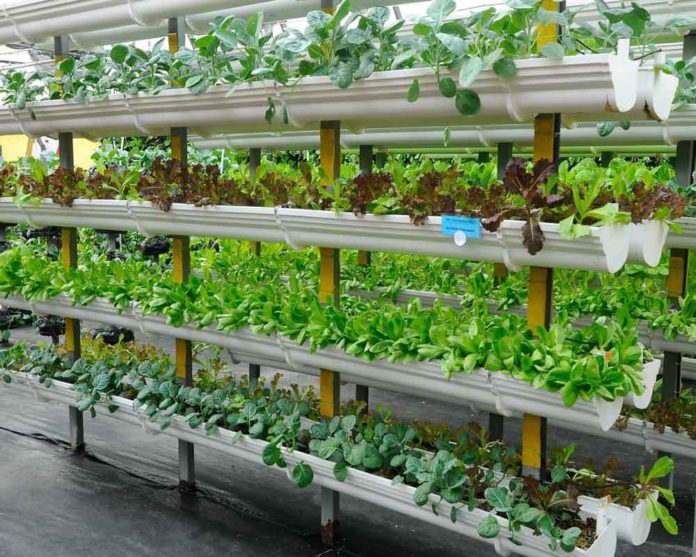An agriculturist, Mr Ismail Olawale, on Monday said local farmers in Nigeria might not be ready to practice hydroponic farming system in spite of its multifaceted benefits.
Olawale, a fellow at the Nigerian Agriculture and Extension Liaison Service (NAERLS), said this in Lagos.
He said that hydroponic farming was a very sensitive farming system that required much attention, adding that it was not just something any farmer could dabble into because of the processes involved in its practice.
Hydroponic farming is a technological method that is gradually gaining ground across the world, especially in countries without adequate land area.
It involves the growing of plants without soil by using mineral nutrient solutions in a water solvent.
Olawale revealed that the cumbersome and attention-demanding nature of hydroponic farming system would not make it easy for local farmers to adopt.
“Hydroponic farming involves the system of farming that does not necessarily need soil to thrive but a system of water tubes.
“It is mostly practiced in areas where there is land problem or a lot of soil infertility or rocky areas where you cannot really do land cultivation farming.
“As an expert in the field, I will say the average local farmer in Nigeria is not ready for hydroponic farming because of its cumbersome nature.
“Nigerian farmers are not ready to practice hydroponic farming at a commercial level because of the process involved in the system.
“Hydroponic farming is great innovation in farming, but in Nigeria I do not see it as an alternative for conventional farming yet.
“It cannot serve as an alternative for food production and food security in Nigeria at the stage we are in now,” the agriculturist said.
Olawale, however, noted that with the right training and government support, young graduates would be able to practice the innovative farming system.
He expressed optimism that young unemployed graduates who ventured into agriculture could easily adopt the new system, if they were well-trained because of their level of education.
The agriculturist said that with the appropriate government support, these educated farmers would be able to practice and enjoy the benefit of hydroponic farming.
“Hydroponic farming system is thriving in Kenya today because there is a kind of government support for it and because of its land terrain.
“Though this new farming system is applicable in Nigeria but it will really demand a lot of efforts on the part of the farmer, if it will work.
“Hydroponic farming is a kind of advanced technology in farming, and pushes the philosophy of what we call horizontal farming i.e. farming upwards,” Olawale said.
The expert noted that the inaccessibility of equipment necessary for hydroponic farming would also contribute to its low adoption in the country.
“The equipment involved in running a hydroponic farm may not be easily accessible to the local farmer although there are local adaptations to the equipment but it is not readily available.
“We had an expert from Kenya two years ago at NAERLS who came to train us on some adaptations of the hydroponic farming equipment but even at that, Nigerian farmers are not patient to learn the ropes,” he said.








